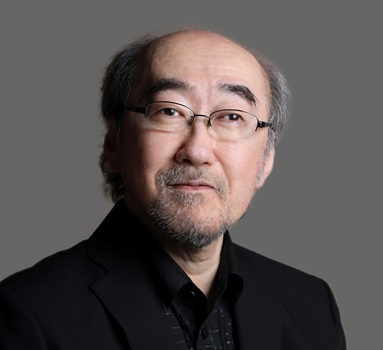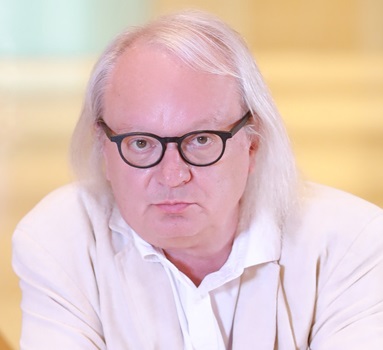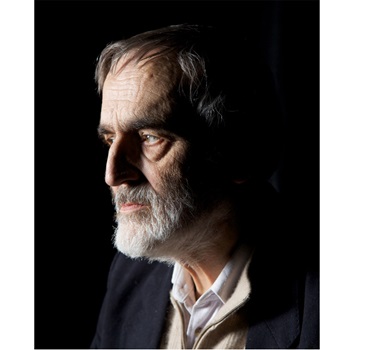News
Festival de l’Intemporel: Messages
2024 Sep.30 (Mon)
Message from NODAIRA Ichiro, Music Director of Tokyo Bunka Kaikan
L’intemporel: a Unique New Music Festival
–Crossover between classical and contemporary music–

“L’intemporel”, a French word meaning timeless or atemporal, signifies in essence not being tied to a specific era. In terms of the world of music, we note that two broad trends prevail in current music festivals: those celebrating contemporary music are becoming more and more specialized and inaccessible to general audiences, while those focused on classical music only play a limited number of masterpieces over and over again. Moreover, these festivals have no connection at all.
Our festival seeks to resolve this situation by offering two unique events. One is a concert pairing a contemporary composer with an historically famous composer, and the other a cinema concert in which a contemporary composer is commissioned to set music to an early-20th-century silent film masterwork. The former is affiliated with the Festival Les Volques in Nîmes, France, and the latter with the Centre Pompidou’s Institute for Research and Coordination in Acoustics/Music (IRCAM) in Paris.
Classical music performances will also offer a twist as the members of the Festival Les Volques belong to Les Siècles, a symphony orchestra known for its use of period instruments. The orchestra switches freely among classical and modern instruments appropriate to the composer’s era. In the piano recitals, the performer will play classical works on a fortepiano and contemporary pieces on a modern piano.
The new festival will mark its debut year with pairings of Beethoven with Philippe Manoury and Schubert with Helmut Lachenmann, taken from past programs at the Festival Les Volques. Each pairing will feature two chamber music concerts and two piano recitals. Les Volques String Trio has been invited from France to perform with Japanese musicians associated with Tokyo Bunka Kaikan. The piano recital will host Tomoki Sakata and Keigo Mukawa, two of Japan’s most popular young pianists today.
The Cinema Concert will pair Teinosuke Kinugasa’s famed silent film A Page of Madness, based on a story by Nobel laureate Yasunari Kawabata, with Paris-based Japanese composer Mayu Hirano. It will be presented using IRCAM’s latest sound system. Yuji Numano will act as MC and commentator.
There will also be a rich educational program, including a master class by the France-based Les Volques String Trio and a talk session hosted by the trio’s Carole Roth-Dauphin (who is also Festival Les Volques music director) and composer Philippe Manoury.
We look forward to seeing you at L’intemporel, this special collaboration among the Festival Les Volques, IRCAM, and Tokyo Bunka Kaikan. We guarantee a unique musical experience.
Message from Philippe MANOURY
How is Beethoven’s music still relevant today?

He really brought music into the modern era and pushed musical ideas into corners undreamt of before him. I hear it in Brahms, Wagner, Mahler, Strauss, Schoenberg, Bartók, and even Stockhausen and Lachenmann. French music has not considered him to this extent. Perhaps that’s why I don’t feel I belong to the French tradition alone.
There are several ideas that attach me to Beethoven. Firstly, that of music in constant evolution and renewal. It is a reflection of nature – in its most modern scientific vision – far from a fixed, idealized image, but in perpetual metamorphosis. Then there’s the combination of logical rigor and overflowing instinctive imagination that fascinates me. “Sometimes free, sometimes rigorous” he wrote in the preface to his Grande Fugue. I always strive to achieve this in my own work. When I hear Bach, I think of the Baroque period, Mozart of classicism, Berlioz of Romanticism, but Beethoven curiously always seems to speak to me of today. He was a very complex man who could write a theme with just 5 notes and draw from it consequences of unprecedented richness. Although deaf, he may have seen the whole future! Or, to put it another way, the future spontaneously built itself from him.
Message from Helmut LACHENMANN
Schubert’s Ländler reflected five times

When asked about my relationship to Schubert in connection with my Schubert Variations, I am somewhat at a loss, just as Beethoven, the composer of the “Diabelli Variations”, could say little about the composer Diabelli, or the composers of the “Paganini Variations”, be it Brahms, Schumann or Rachmaninoff, could not say much about the composer Paganini.
In my youth, I played Schubert’s piano music almost every day and I loved it, just as I played and loved Bach and the music of the Viennese Classic, Haydn, Mozart, Beethoven.
I composed my “Five Variations on a Ländler by Franz Schubert” when I was a twenty-year-old music student, wandering aimlessly in the musical world then familiar to me, irritated by the music of the “Second Viennese School”, Schönberg, Berg, Webern. My musical world view did not go further than to Hindemith, Bartók, Stravinsky, Debussy. (I experienced the so-called Avant-garde, Stockhausen, Boulez, Nono, Cage or even non-European music only as faraway flashes of lightning).
The romantic depth and solitude that Schubert’s music exudes left me indifferent at that time. My aim was simply to familiarize myself with the genre of “variation”, probably because this genre draws attention to the composed structure of the music, to the harmonics and motivic design (perhaps to what Debussy praised as “Arabesque” in Bach’s music).
My take on this Ländler was that of a child curiously examining the music composed by Schubert like an interesting toy, immediately taking it apart. But it was precisely this sober play that gave my composition its own expression.
Festival de l’Intemporel
Wed, Nov 27, 2024–Sun, Dec 1, 2024
Tokyo Bunka Kaikan Recital Hall
Lineup
